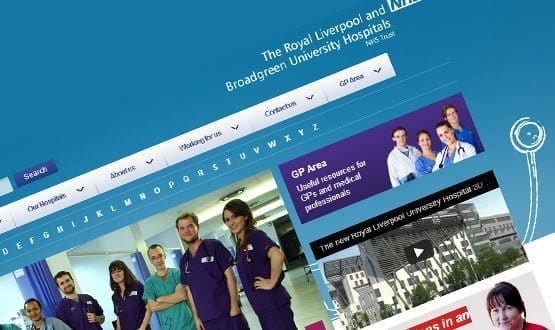CCIO profile: Dr Mike Fisher
- 21 February 2013

One of the debates around the chief clinical information officer role is whether it should be full time or part time.
Mike Fisher, consultant cardiologist at the Royal Liverpool and Broadgreen University Hospitals trust, has zero time formally allocated to the CCIO he has undertaken since summer 2012.
Bear in mind that the trust has a new hospital building in the pipeline – a building that does not include a medical records department and therefore requires the trust to be paperless by 2017 – and his task seems all the more daunting. As he cheerfully admits: “I don’t really have a life.”
From the school mainframe to NHS IT
Dr Fisher comes to the role from an old school IT background. “I trained in the days before microprocessors were invented,” he says.
“At school [Manchester Grammar] we had an old ICL mainframe that we repaired and got going again. We collected bits of kit that people had thrown out and we became the only site in the UK capable of copying the old format of computer tapes into the new.”
He has worked as a programmer for ICL, run databases for the Post Office, and set up his own company, Medical Information Technology or MIT to develop note keeping and administration systems for doctors in private practice.
His appointment as CCIO at Royal Liverpool and Broadgreen came after a stint as clinical trust lead for IT. “This was a role that in many ways had the same sort of functions as the CCIO but was less formal,” he says.
The CCIO role and title was seen as a crucial developmental stage in an organisation that is known for being forward thinking on IT.
The imperative for paperless
EHI regulars will already be familiar with the work led by trust IT director James Norman to implement a patient portal from Harris Healthcare and CSC, which went live at the end of 2011.
Single sign-on from Imprivata was added in summer 2012. The trust has also aggressively driven the use of Sunquest’s ICE order communications since 2010.
The portal was originally implemented as a strategic alternative to a new electronic patient record. “We felt that the notion of a single system that would produce an EPR was a non-starter,” explains Dr Fisher.
“We did not believe it could be made to work and preferred the portal concept. I was strongly supportive of that.”
With work on the new, £425m, part-PFI building expected to get underway in the summer of 2013, and with a completion date sometime in 2016-17, the pressure to go paperless is now on.
“If we don’t succeed it will be a disaster,” admits Dr Fisher. “We will have a huge barn in which we cannot treat any patients. It does tend to concentrate people’s minds.”
With no scanning
Dr Fisher reports to Norman and to the trust medical director and sits on the trust IT board. He is also the clinical safety officer so has an input into project initiation from a clinical safety perspective. “I think I would have a hard time dividing these two roles,” he says.
His single most important task, though, is clinical engagement. “My role is to talk to colleagues both in formal and informal settings such as trust clinical summits,” he says.
This engagement has informed hard decisions – such as the trust’s stance on scanning historical records.
“We have decided not to do it,” explains Dr Fisher. “I pointed out that an illegible, disorganised pile of crap is still a disorganised pile of crap – even if you scan it.
“We have opted for some cheap off-site storage where necessary and accepted the risk of the approach. But it’s been interesting to hear from people who are amazed that we were able to get that through.”
This brings him back to one of his constant themes. “I think it’s important to continuously make the point that simply being electronic – without building in the added value that computer systems can provide – is actually no advantage. In fact, it makes things worse.”
Clinical noting the next challenge
Dr Fisher has recently set up a clinical engagement group that operates entirely through Microsoft SharePoint.
“I have deliberately tried to engage enthusiasts as well as people who are not enthusiastic about IT and people who are not technophiles. It is important that you have the people who will give you an honest opinion.”
One of the first talking points on that forum has been about the electronic prescribing and medicines administration system and how to roll it out safely and effectively.
The one piece that Dr Fisher feels remains untouched is clinical note keeping. As of 2013, the clinical portal will be live with results, ordering, all the underlying systems such as EPMA and clinical correspondence – but not note keeping.
Notes from clinics will still be handwritten, scanned at the end of the clinic and the paper destroyed. But the desire is to automate this too.
“We do not know how to solve it yet,” says Dr Fisher. “We have various options, such as using clinical forms within ICE or putting clinical forms and note keeping into decision management systems. For the moment we have a halfway house.”
Trust backing – and a great PA
So can he realistically call himself a CCIO with no time allocated to the job? Dr Fisher thinks he can.
“I have to be realistic about what I can do,” he says. “I am supported by a brilliant PA and would go down in flames without her.
“I have no doubt I do not fulfil the role in the same way as some people, but I feel I have the backing of the trust and I have delivered a relatively structured performance. If that ceases to be the case, then perhaps things would have to change.”




